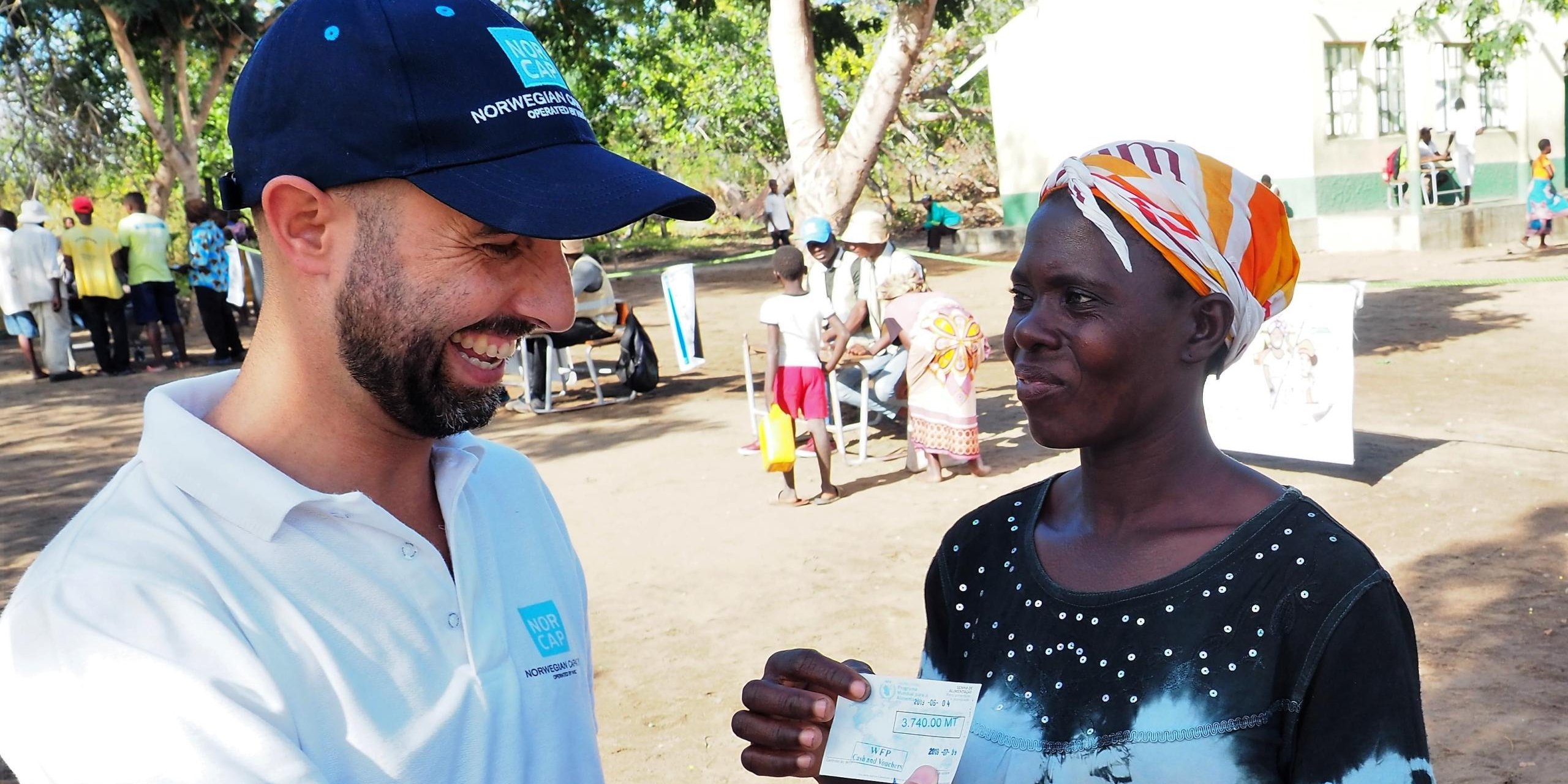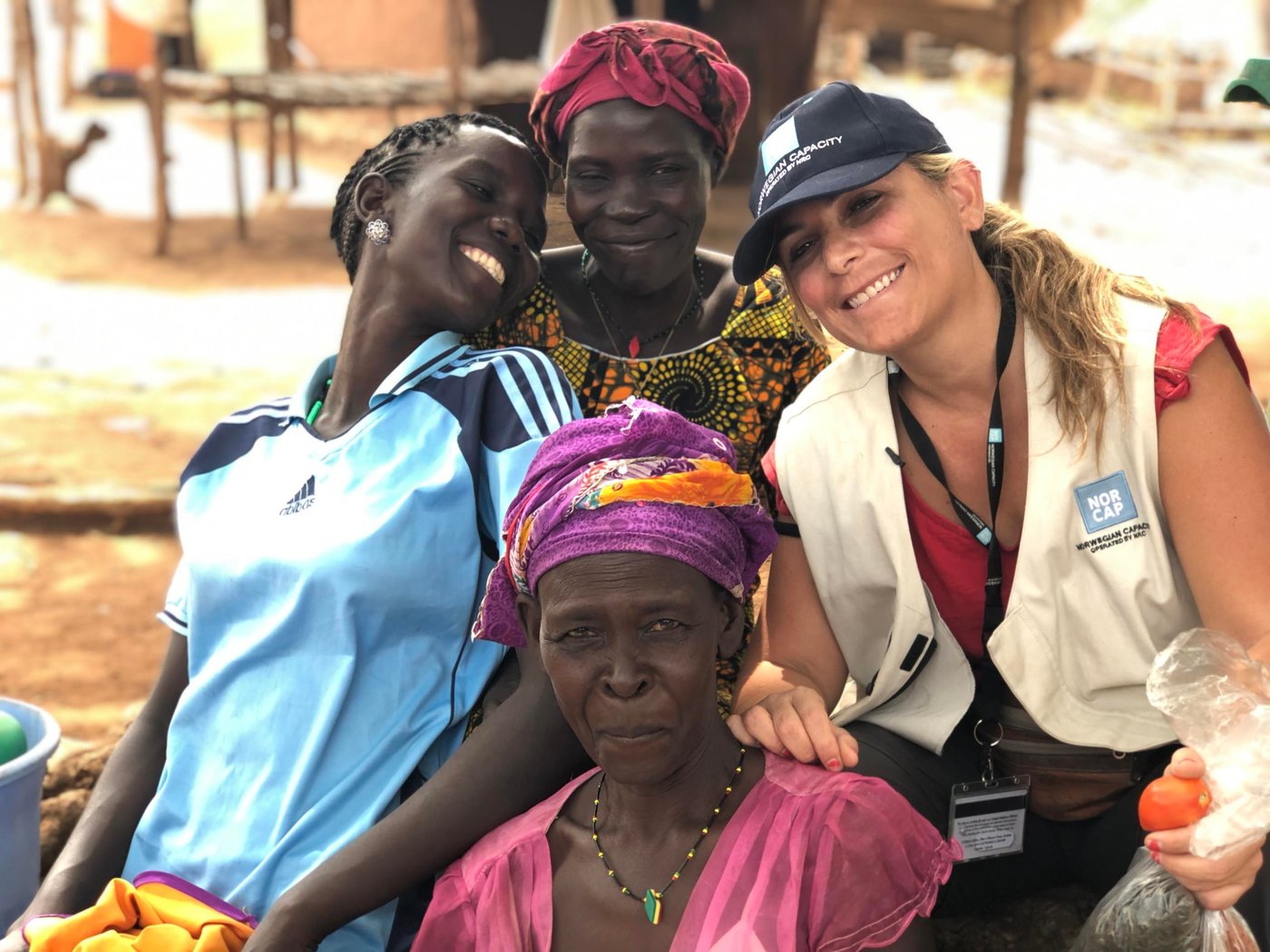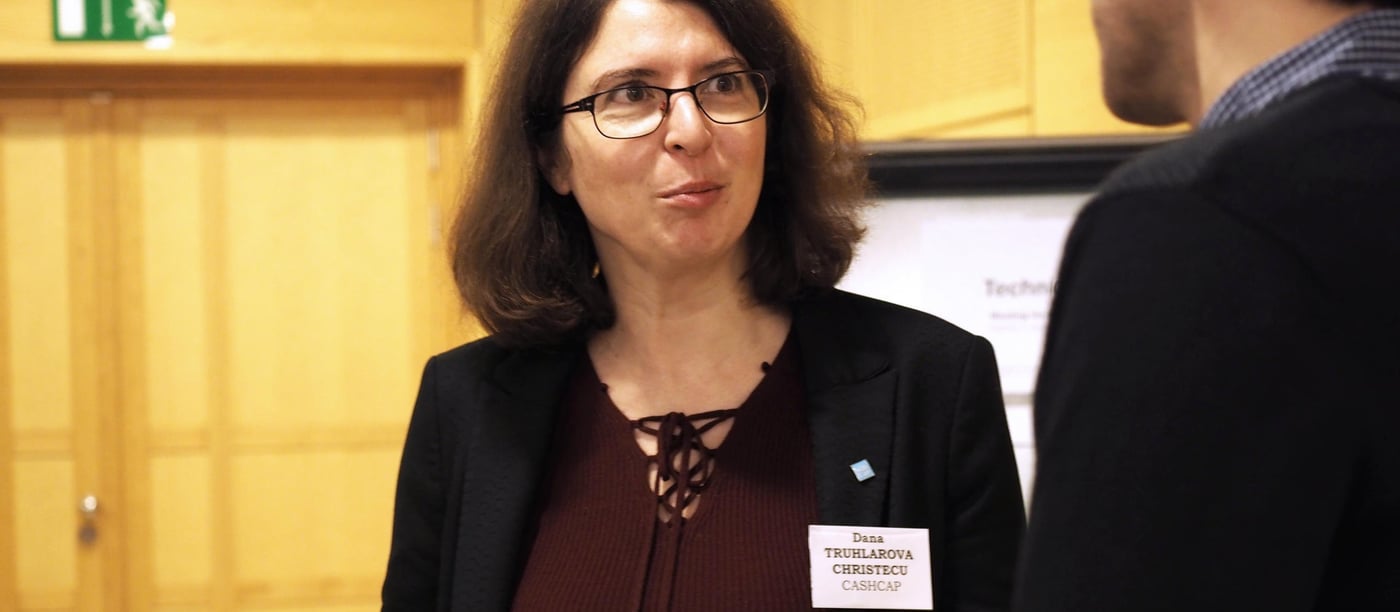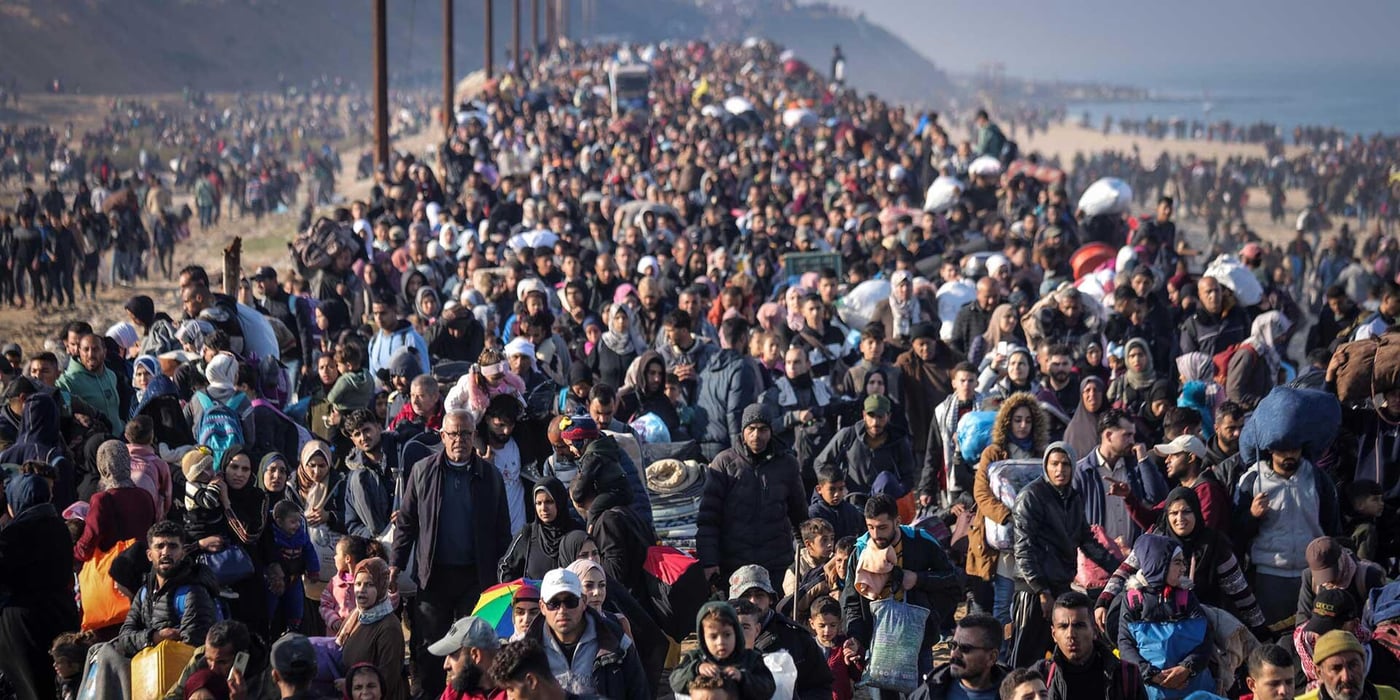
Cash assistance is now globally accepted as a more efficient, more dignified type of aid in many humanitarian contexts. When people are given cash, instead of pre-packaged food and non-food items, they are given the choice to prioritise the most urgent needs unique to their household post-crisis.
In the first World Humanitarian Summit in 2016, the humanitarian community signed up to the Grand Bargain commitments, which include scaling up cash and its coordination globally.
This global imperative resulted in an increased focus on cash across humanitarian and development sectors. According to the State of the World Cash Report, because cash can be used in many different contexts towards different ends and in combination with other types of assistance, implementing actors must have a harmonised and holistic approach, communicating and coordinating their cash activities.
As the use of cash grows, the CashCap team is working towards a more cohesive approach to linking global dialogue and commitments with regional and country-driven initiatives and discussions.
Influencing global discussions
At the UNICEF headquarters in Geneva, CashCap expert Dana Cristescu consults on cash implementation, trains cluster partners and builds the evidence base for cash programming by collecting data from national projects. Her work focuses on three humanitarian clusters: education, nutrition, and water, sanitation and health (WASH).
While UNICEF is the lead agency for all three of these clusters, and hosting Cristescu, she works independently from UNICEF’s agenda.
This is because CashCap responds only to multi-agency requests, which enables experts to remain neutral of single agency agendas and thus support a broad humanitarian response. This independent role means they serve a combination of high-level decision makers, coordination structures, cash and market working groups and technical projects.
For Cristescu, developing training modules, advising humanitarian actors (UN, INGO and donors) and supporting teams in the field have led to sector-wide improvements in cash programming. Advances have been particularly notable in the education response, where Cristescu has promoted the consideration of cash as a response option among others, to global and field decision makers.
“At the beginning of my assignment in January 2018, the education sector was lagging behind in terms of awareness and use of cash. At the global level, there is a lot of interest now, and thanks to ongoing and upcoming work, this is slowly trickling down to the field level,” says Cristescu.
Supporting a holistic response
Being inter-agency means that experts, who are strategically placed across different settings, phases and levels of a crisis, can collaborate with one another to execute a more efficient and holistic response.
When asked to deliver recommendations for a workshop on how cash is reported in the field, Cristescu offered Syria as a case study. For assistance, she reached out to fellow CashCap expert Fe Kagahastian, who is deployed to the Whole of Syria response as the regional cash and markets expert.
“It was very useful to know Fe well, because she could respond quickly and there's a certain level of trust among us that makes it easier to explain the finer points and to understand what we can and cannot say. Sometimes the issues we are working on are sensitive, so the more we know and trust the people who work on them, the better,” says Cristescu.
Kagahastian’s role supports a broad set of humanitarian stakeholders involved in implementing cash and voucher assistance in the three regional response hubs of the complex Syria crisis: northeast, northwest, and south-central Syria. This includes non-governmental organisations, cash working groups, UN agencies, humanitarian donors, local authorities and the affected communities.
Being a CashCap expert gives her the freedom she needs to prioritise what is most vital to affected populations, like food security, shelter and protection, while advancing other sector initiatives as opportunities arise. One such opportunity came when Cristescu brought Kagahastian in as a co-facilitator in the annual retreat of education cluster coordinators in Amman earlier this year, leading to follow-up interactions that created synergies within the education response in the region.
“The event in Amman gave me a chance to engage the cluster coordinators and partners from the different Syria hubs in person. Building on my meeting with the education cluster co-coordinator for the Gaziantep hub, I was ,” says Kagahastian.
This is important because cash experts do not necessarily know education experts and vice versa, and establishing links and trust can be time-consuming. Because cash works across sectors, being able to draw on each other’s connections in the way Cristescu and Kagahastian did, is key.
Gaining trust through independence
These fruitful joint efforts, across clusters and levels of response, are achievements that Kagahastian attributes to CashCap’s unique position in the overall humanitarian landscape.
“The independence, impartiality and neutrality that is associated with CashCap is huge,” she says.
“It is one of those intangibles that's hard to measure but gets underscored when an expert is able to collaborate without any politics with sector coordinators and develop tools that benefit the wider community of practice. I became the bridge between donors, UN agencies and NGOs, as the honest broker facilitating quality cash programming for the ultimate benefit of the people in crisis we are trying to help,” she says.
The success enjoyed by CashCap experts in building relationships among various partners is just as much a result of their proven competence. A strong CashCap reputation has been earned by experts at all levels of humanitarian response, from the global, like Cristescu, to the regional, like Kagahastian, all the way down to the field.
Coordinating actors on the ground
In South Sudan, CashCap expert Rabeea Ahmed coordinated and advised cash implementation by increasing and strengthening cooperation between implementing agencies and cash working groups at the national level.
“It took a while for [the various agencies involved in the response] to entrust me with their issues and requests for support. None of the cluster leads used to participate in the cash working group meetings because there was a general pessimism and a lack of ownership towards cash. Some clusters were quite sarcastic about the use of cash in their respective programmes,” Ahmed says.
Because of this, the advantages of cash assistance outlined in the Grand Bargain could not be enjoyed by the people or implementing agencies in South Sudan. However, Ahmed managed to make a change.
“During my deployment, I was able to build trust and good relations [with a number of important stakeholders]. Now, every cluster has a cash focal point regularly attending meetings. With their participation, I have held capacity building sessions and provided guidance for integration of cash and vouchers in the humanitarian response plans and projects. I have also lobbied for the development of a cash working group strategy for South Sudan, which is now supported by all clusters, cash working group members and donors,” says Ahmed.
With these measures in place, cash programming can be more effectively implemented in the field.

Building evidence for context tailored assistance
Achieving these results not only supported the South Sudan communities, but also helped flag successful interventions to inform and direct regional and global cash discussions.
“In my experience, the approach towards initiatives and priorities should always be a two-way conversation. New initiatives tried and tested at the national level can be taken up as learnings and can contribute to regional and global conversations, bringing the element of flexibility in their approaches and policies," says Ahmed.
This is echoed by Cristescu, who uses findings from the national level to inform her guidance of global clusters.
“I am in contact particularly with the national levels because, in practice, programs are often implemented in various countries, but knowledge about them is not shared with other organizations and other countries who are interested to know more and possibly implement that type of program themselves,” says Cristescu.
Her role, therefore, is to bring these findings up to the global level, presenting them to decision makers and cluster leads who can disseminate learnings back down for implementation in other national offices.
According to CashCap Project Manager, Mamta Khanal Basnet, this is precisely the type of dynamic that CashCap aims to enhance.
“It is important for CashCap to work on all three levels, because the clusters are at very different stages when it comes to using cash as a response option. Supporting them globally initiates the foundation of using cash, and the decisions that are made at the global level, are then put forward by our regional and country level experts. Their experiences are then fed back to the global level for further development. This ensures the quality at the different levels and helps tie together the various initiatives,” she says.





